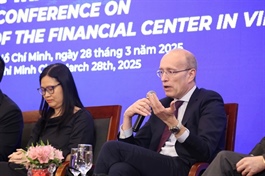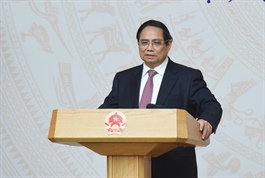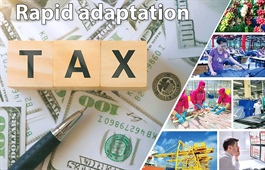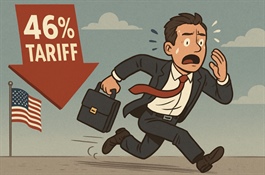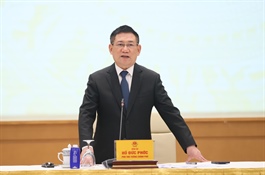Exchange-traded funds appealing for digital assets
Exchange-traded funds appealing for digital assets
As digital assets gain increasing prominence, many experts believe that exchange-traded funds could be the safest and most feasible approach.
In late March, at an event discussing the potential of digital assets in Vietnam, Jan Van Eck, CEO of investment fund VanEck, said he believed exchange-traded funds (ETFs) represent the optimal path if Vietnam aims to build a structured, sustainable, and competitive digital asset ecosystem.
An ETF is an investment fund listed on the stock exchange, allowing investors to buy and sell fund certificates on trading platforms. They can invest in various asset classes, including equities, bonds, commodities, and digital assets.
“ETFs are accessible, transparent, and well-suited for retail investors. Notably, digital asset ETFs, particularly Bitcoin funds, have played a key role in bringing the digital asset market out of the grey zone and closer to the mainstream financial system,” said Van Eck.
To foster a vibrant market, he highlighted two crucial factors. “Firstly, whether investors feel they can outperform the index, this depends on the efficiency of the market. For example, in the US, almost no investor has been able to beat the S&P500 index,” he said. “However, in certain other markets, active investors, fund managers, or individual traders frequently outperform the index.”
Secondly, the success of ETFs also hinges on the regulatory framework and the level of investor protection. “A clear and well-defined regulatory environment builds confidence among investors and institutions, ensuring that ETFs operate transparently and efficiently,” Van Eck said.
Regarding the Vietnamese market, he observed that several funds have the potential to deliver better performance than the index. However, this depends on which index is used and other factors. “I believe that in the next 10-20 years, ETFs will become a more significant part of Vietnam’s market,” added Van Eck.
Meanwhile, Dragon Capital has proposed that Vietnam should introduce tokenised ETFs, as outlined in its white paper published in March. The firm emphasised that these advanced financial products would be backed by real assets and provided by reputable financial institutions under the supervision of regulatory bodies.
“Tokenisation creates opportunities to pull in greater participation from retail investors, protect them from risks, and strengthen the financial system through stringent regulatory frameworks,” said its CEO Beat Schuerch. “This approach not only ensures transparency in the token issuance process but also enhances the security of secondary transactions. Moreover, it improves service provider management, ensuring tax revenue collection and maintaining stable capital flows.”
Schuerch believed that implementing such initiatives aligns with Vietnam’s goal of developing a secure and transparent financial market. At the same time, it could position Vietnam as a potential global financial hub.
“By adopting regulated digital assets, Vietnam can enhance financial accessibility, drive economic growth, and integrate with global trends, particularly the rising participation of retail investors,” he added.
As a type of digital asset that can be invested in through ETFs, tokenised gold has reached a record market capitalisation of $1.4 billion globally as of March, according to info service CoinDesk. The market has become increasingly active, with trading volumes surging after the price of physical gold hit a new all-time high of over $3,000 per ounce, pushing the transaction volume of gold tokens beyond $1.6 billion, the highest level in over a year.
Ha Xuan Son, lecturer of Blockchain Enabled Business at the SGS Campus under RMIT University, said asset tokenisation is opening up new opportunities. “A prime example is real estate, which can be divided into multiple tokens, enabling retail investors to participate with lower capital requirements. A report from Custom Market Insights in 2024 recorded the market value of real estate tokens at $3.5 billion,” Son said.
Tokenisation is also applied to various other asset classes such as artworks, intellectual property, and even shares of private companies, Son added. “A notable example is the project by the Singapore Exchange, where corporate bonds are issued in the form of tokens, reducing issuance costs and enhancing liquidity in the bond market,” said Son.
- 08:00 09/04/2025






